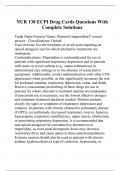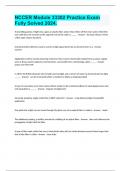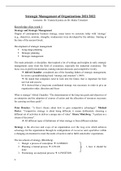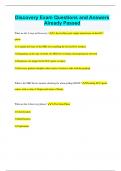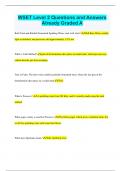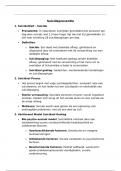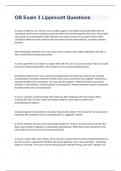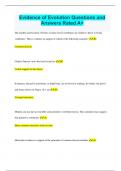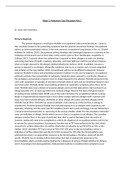Examen
NUR 138 ECPI Drug Cards Questions With Complete Solutions
- Grado
- NUR 138
- Institución
- Ecpi Medical College Institute
Trade Name/Generic Name: Demerol (meperidine)* correct answer: Classifications: Opioid Uses/Actions: For the treatment of severe pain requiring an opioid analgesic and for which alternative treatments are inadequate. Contraindications: Meperidine is contraindicated for use in patients with signi...
[Mostrar más]
